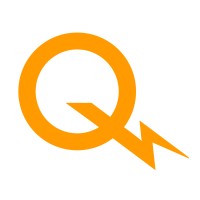Company Cyber Security Posture
NANA
NA Company Details
NA
NA
NA
NA
NA
NA
Scan still pending
NA
NA
Between 200 and 800
This score is AI-generated and less favored by cyber insurers, who prefer the TPRM score.
 NA Global Score
NA Global Score.png)

Company Scoring based on AI Models
| Model Name | Date | Description | Current Score Difference | Score |
|---|---|---|---|---|
| AVERAGE-Industry | 03-12-2025 | This score represents the average cybersecurity rating of companies already scanned within the same industry. It provides a benchmark to compare an individual company's security posture against its industry peers. | N/A | Between 200 and 800 |
Company Cyber Security News & History
| Entity | Type | Severity | Impact | Seen | Url ID | Details | View |
|---|
Company Subsidiaries

NA
Access Data Using Our API

Get company history
.png)
NA Cyber Security News
Ataques cibernéticos: ¿cuáles son los principales y cómo protegerse de ellos?
A cyberattack is a set of actions directed against information systems, such as databases or computer networks, with the aim of harming people, institutions or ...
The Cyber Conflicts that will define the next five years - Alec Ross
The Cyber Conflicts that will define the next five years · Main types: attacks on a network's confidentiality, availability, or integrity · Integrity attacks.
Top Cybersecurity Employers in Spain: Who's Hiring and What They Look For
The top cybersecurity employers in Spain include Telefónica, Iberdrola, BBVA, Deloitte, Repsol, and Vodafone. These companies are actively ...
Avangrid Achieves Near-Perfect Cybersecurity Rating from SecurityScorecard
Avangrid achieved a security score of 98 from SecurityScorecard, a global leader in cybersecurity ratings, significantly higher than the ...
Public-private collaboration is essential in the face of the growing importance of cybersecurity
Public-private cooperation is very important in the field of cybersecurity and cybersecurity itself is currently essential in the protection ...
Data of 850,000 Iberdrola customers up for sale after cyber-attack in Spain
One of the electricity company's suppliers was hacked in early May, stealing 1.5 gigabytes of non-confidential information used for phishing.
Iberdrola and Avangrid accused of bid-rigging, racketeering in lawsuit
A cybersecurity company filed a $110 million lawsuit in New York on Monday, accusing the Spanish global energy giant Iberdrola and its U.S. ...
Spanish police investigate whether hackers stole millions of drivers' data
Spanish police said on Friday there were investigating whether the private information of millions of vehicle drivers had been offered up ...
Iberdrola to invest €290 million in digitalisation in 2024
Iberdrola is investing €290 million ($312 million) to boost digitalisation, chairman Ignacio Galán has announced.

NA Similar Companies

Hydro Québec
Hydro-Québec produit, transporte et distribue de l'électricité. Elle exploite essentiellement des énergies renouvelables, plus particulièrement l'hydroélectricité. Elle fait aussi de la recherche dans les domaines reliés à l'énergie et s'intéresse activement à l'efficacité énergétique. En outre, ell

Siemens Energy
Siemens Energy is one of the world’s leading energy technology companies. The company works with its customers and partners on energy systems for the future, thus supporting the transition to a more sustainable world. With its portfolio of products, solutions and services, Siemens Energy covers almo

Frequently Asked Questions
Explore insights on cybersecurity incidents, risk posture, and Rankiteo's assessments.
NA CyberSecurity History Information
How many cyber incidents has NA faced?
Total Incidents: According to Rankiteo, NA has faced 0 incidents in the past.
What types of cybersecurity incidents have occurred at NA?
Incident Types: The types of cybersecurity incidents that have occurred include .
Additional Questions
What Do We Measure?
















Every week, Rankiteo analyzes billions of signals to give organizations a sharper, faster view of emerging risks. With deeper, more actionable intelligence at their fingertips, security teams can outpace threat actors, respond instantly to Zero-Day attacks, and dramatically shrink their risk exposure window.
These are some of the factors we use to calculate the overall score:
Identify exposed access points, detect misconfigured SSL certificates, and uncover vulnerabilities across the network infrastructure.
Gain visibility into the software components used within an organization to detect vulnerabilities, manage risk, and ensure supply chain security.
Monitor and manage all IT assets and their configurations to ensure accurate, real-time visibility across the company's technology environment.
Leverage real-time insights on active threats, malware campaigns, and emerging vulnerabilities to proactively defend against evolving cyberattacks.




